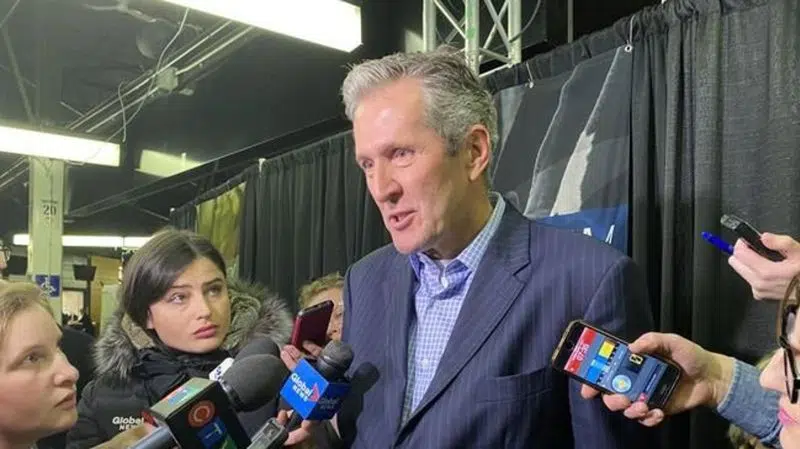
Manitoba premier says grain-drying would be exempt from a provincial carbon tax
BRANDON, Man. — One day after signalling a compromise on a carbon tax, Manitoba Premier Brian Pallister pitched the idea to agriculture producers who have largely opposed a tax on carbon and who have faced big bills from the federal levy.
Pallister told an agricultural exposition Tuesday that he plans to introduce a provincial carbon tax which, unlike the federal one, would not apply to grain-drying costs.
“Just that alone is a significant indication of the cost benefits of having a Manitoba plan,” Pallister told a few hundred people at Manitoba Ag Days.
“We are going to implement our made-in-Manitoba green plan because it is better for the economy than Ottawa’s, it is better for the environment than Ottawa’s and, most importantly it is better for us, our children and grandchildren than Ottawa’s.”


